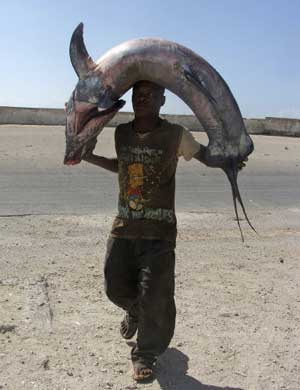Really Really Free Markets
According to the capitalist lexicon, the “Free Market” is the economic system in which prices are determined by unrestricted competition between privately owned businesses. Any sensible person can recognize immediately that neither human beings nor resources are free in such a system; hence, a “Really Really Free Market” is a market that operates according to gift economics, in which nothing is for sale and the only rule is share and share alike. In the interest of not taxing the reader’s patience, a single apostrophe stands in for the two “Really”s throughout this text. Read more


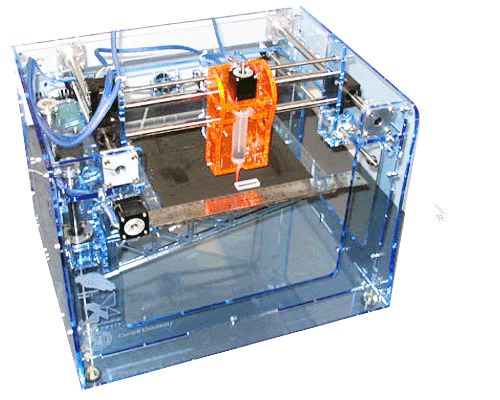 A
A  Commonwealth is the latest collaboration between Michael Hardt, a Duke University professor who specializes in Italian literature, and Toni Negri, an original member of the radical Autonomia group in Italy. Negri is the more colorful of the two, having at one time been accused of being the intellectual leader of the Red Brigades terrorists who in 1978 kidnapped and murdered former Italian Prime Minister Aldo Moro. Negri fled to France and lived in exile before returning to Italy in 1997 to serve out the remainder of a reduced prison sentence on a lesser charge.)Commonwealth concludes the trilogy that started with Empire (2000) and continued with Multitude: War and Democracy in the Age of Empire (2004), both also from Harvard University Press.
Commonwealth is the latest collaboration between Michael Hardt, a Duke University professor who specializes in Italian literature, and Toni Negri, an original member of the radical Autonomia group in Italy. Negri is the more colorful of the two, having at one time been accused of being the intellectual leader of the Red Brigades terrorists who in 1978 kidnapped and murdered former Italian Prime Minister Aldo Moro. Negri fled to France and lived in exile before returning to Italy in 1997 to serve out the remainder of a reduced prison sentence on a lesser charge.)Commonwealth concludes the trilogy that started with Empire (2000) and continued with Multitude: War and Democracy in the Age of Empire (2004), both also from Harvard University Press. 
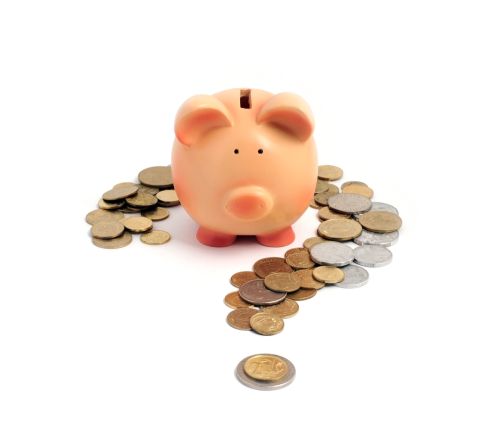 The pension reforms of the years 2000 until 2007 were supposed to attenuate the foreseeable effects of demographic change on the pension system. This is why the retirement age was raised, the pension level was lowered and a so-called sustainability factor (“Nachhaltigkeitsfaktor”) was introduced into the pension formula. This approach meant a fundamental change of objectives – from safeguarding living standards in retirement to the stability of contribution rates. The lower future pension level is to be complemented by the subsidised formation of a private capital stock (“Riester pension”) without employer participation. The analysis of the macroeconomic consequences of this reform shows that the chosen policy of enhanced funding both dampens growth and leads to insufficient income in old age. Thus the current strategy is not suitable for alleviating the demographic burden.
The pension reforms of the years 2000 until 2007 were supposed to attenuate the foreseeable effects of demographic change on the pension system. This is why the retirement age was raised, the pension level was lowered and a so-called sustainability factor (“Nachhaltigkeitsfaktor”) was introduced into the pension formula. This approach meant a fundamental change of objectives – from safeguarding living standards in retirement to the stability of contribution rates. The lower future pension level is to be complemented by the subsidised formation of a private capital stock (“Riester pension”) without employer participation. The analysis of the macroeconomic consequences of this reform shows that the chosen policy of enhanced funding both dampens growth and leads to insufficient income in old age. Thus the current strategy is not suitable for alleviating the demographic burden. 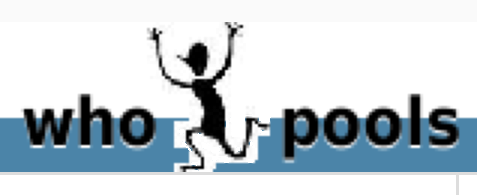
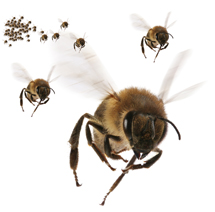 After several decades of relentless neoliberal enclosures, the idea of ‘commons’ is enjoying a renaissance amongst some neo-Keynesian economists and commentators, while political scientist Elinor Ostrom has just been award the Nobel prize ‘for her analysis of economic governance, especially the commons’. Massimo De Angelis explains why capital’s commons will always be distorted – because they are based upon social injustice – and why we can only reclaim the commons from capital by constructing common interests.
After several decades of relentless neoliberal enclosures, the idea of ‘commons’ is enjoying a renaissance amongst some neo-Keynesian economists and commentators, while political scientist Elinor Ostrom has just been award the Nobel prize ‘for her analysis of economic governance, especially the commons’. Massimo De Angelis explains why capital’s commons will always be distorted – because they are based upon social injustice – and why we can only reclaim the commons from capital by constructing common interests. 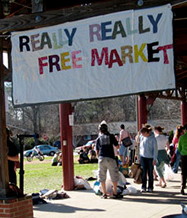 According to the capitalist lexicon, the “Free Market” is the economic system in which prices are determined by unrestricted competition between privately owned businesses. Any sensible person can recognize immediately that neither human beings nor resources are free in such a system; hence, a “Really Really Free Market” is a market that operates according to gift economics, in which nothing is for sale and the only rule is share and share alike. In the interest of not taxing the reader’s patience, a single apostrophe stands in for the two “Really”s throughout this text.
According to the capitalist lexicon, the “Free Market” is the economic system in which prices are determined by unrestricted competition between privately owned businesses. Any sensible person can recognize immediately that neither human beings nor resources are free in such a system; hence, a “Really Really Free Market” is a market that operates according to gift economics, in which nothing is for sale and the only rule is share and share alike. In the interest of not taxing the reader’s patience, a single apostrophe stands in for the two “Really”s throughout this text. 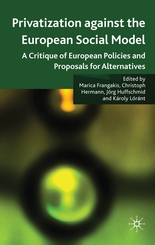 There are no more conferences. The final product of the CA
There are no more conferences. The final product of the CA 